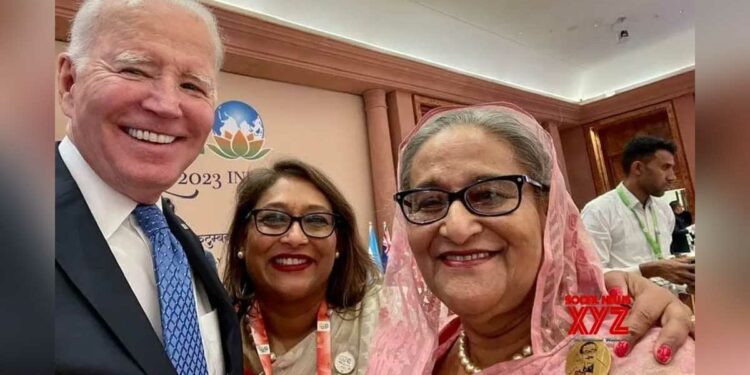Even as Bangladesh heads for elections, it is caught up in the midst of an intense geopolitical battle among international and regional powers

Bangladesh today finds itself at a crossroad. Even as elections to the 12th National Assembly is round the corner, the fate of the country’s 180 million people remains uncertain faced as they are with an unprecedented situation marked by uncompromising and violent domestic politics and intense geopolitics.
The ruling Awami League has been in power for 15 consecutive years, which is also a first Bangladesh’s tortured democracy. However, these years of Awami League’s rule have caused the infliction of wounds both on the nation as a whole and the fledgling democracy in part.
Corruption in high places is not unknown in Bangladesh but the loot of the public exchequer coupled with the shadowy role of the oligarchs – essentially a nexus between big business, political leaders and the bureaucracy – has caused to cripple the economy.
The country’s foreign exchange reserve has hit an all-time low – estimated to be around $18 billion or less – the value of the dollar in the retail market has broken all records, there is little or no check on rising prices of essential commodities and the poverty rate is steadily climbing.
This is also the first time since Bangladesh’s liberation in 1971 that in the last few years business houses have taken out massive amounts of loans from various banks.
These invariably have tuned into ‘bad loans’ and banks are burdened with non-performing assets. Less than nine years ago, Bangladesh Bank recorded its first digital heist of $81 million. Needless to say, investigations into this case have not gone anywhere.
There was a time in Bangladesh’s history that the ideals of the liberation — equality, social justice and secularism – formed the young nation’s strongest pillars.
It took 20 years for the establishment of some basic democratic principles but today Bangladesh’s economy, political processes, social policy and secularism are in tatters even as one-party rule prevails.
Bangladeshis are a proud and freedom-loving people but they are tired of divisive politics and everyday corruption and maladministration.
But they also find their country in the vice-like grip of geopolitics in which competing states such as China, India, Russia and the United States are jockeying to exercise power.
The ruling party in Bangladesh has been playing one country against another and seeking to balance in a way to seek maximum mileage.
Beijing has promised to come to Bangladesh’s aid by offering to provide financial assistance that would improve the latter’s foreign reserves.
India too seeks to get its own pound of flesh in exchange for the ‘help’ and ‘assistance’ that it provided by having Prime Minister Sheikh Hasina’s daughter Saima Wazed Putul elected as the WHO regional director.
In the recently concluded India-US ‘2+2’ Ministerial Dialogue, India and the US are said to have taken divergent views on Bangladesh.
While New Delhi indicated that it would continue to support the Sheikh Hasina regime, the US insisted has been insisting that free, fair and violence-free elections are held in Bangladesh.
China’s position is not very different from India’s, giving rise to speculations on how much the countries are willing to do to “indulge Bangladesh”.
Or does the Sheikh Hasina regime find itself in a “trap” in the politics of China and India?
Whatever India’s compulsions, questions also arise over the risks that Delhi might be willing to take to cause any adverse impact on its strategic partnership with the US, especially on the issue of the elections in Bangladesh.
The US has been harping on rescuing democracy and protecting human rights in Bangladesh and has sought to pressure Dhaka on both these counts.
On its part, the ruling Awami League is desperate to consolidate its power by suppressing the opposition while seeking to pit the US against its traditional ally India and China. But India’s position remains quite ambiguous or even questionable insofar as China is concerned.
What is interesting, however, is to watch how this three-dimensional international games plays out in the backdrop of Bangladesh’s domestic politics.
It also remains to be seen how deftly the Awami League manages to balance international politics on one hand and domestic politics on the other.
Given the tough stand adopted by the US, and in the event it chooses to opt for hard punitive measures, the Awami League might end up on the wrong side of what it bargained for.
In the process, it could end up wrecking its political standing within Bangladesh and leave the country in a terrible and desperate condition.

